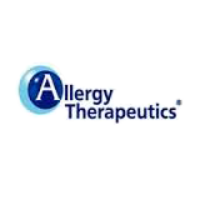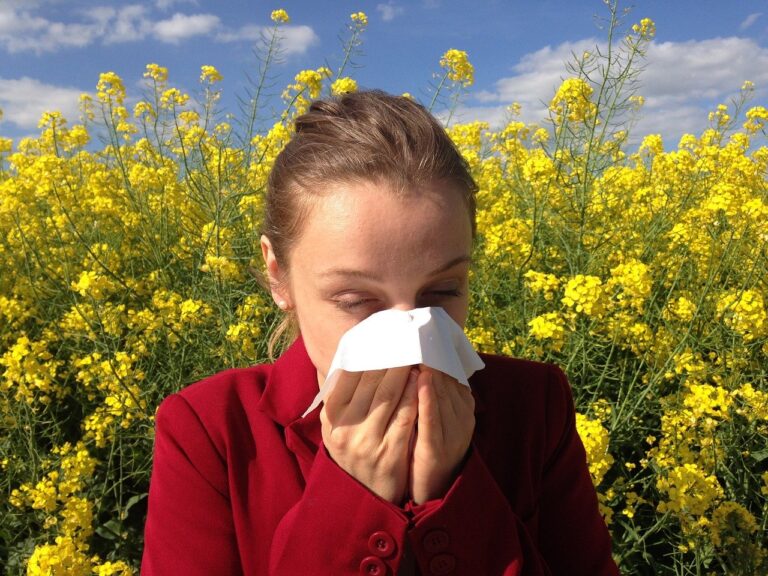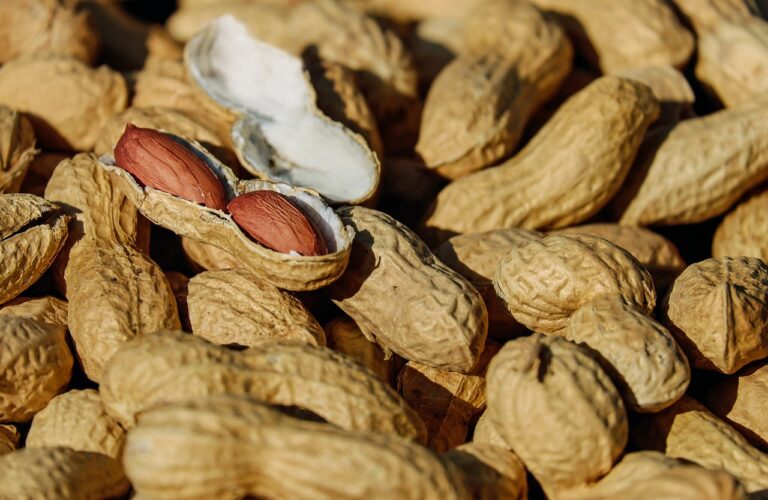Allergy Therapeutics plc (LON:AGY), the fully integrated specialty pharmaceutical group specialising in allergy vaccines, today announced its preliminary results for the year ended 30 June 2017.
Financial highlights
· 72% increase in operating profit (pre-R&D) to £7.4m (2016: £4.3m)
· 32% revenue growth increase in actual terms to £64.1m (2016: £48.5m)
· 15%* revenue growth at constant currency to £55.5m (2016: £48.5m)
· 10% compound annual growth in net sales over 18 years
· Market share in the Group’s main European markets increased to 13% (2016: 12%)
· Cash at 30 June £22.1m (2016: £23.4m)
Operational highlights
· Commencement of recruitment for pivotal Phase III Pollinex Quattro Birch trial
· US Grass MATA programme proceeding well; safety study successfully completed
· First patient recruited for Acarovac MPL Phase I trial in Spain
· Positive pre-clinical proof of concept trial data announced for Polyvac Peanut
Manuel Llobet, Chief Executive Officer of Allergy Therapeutics, commented: “This has been another strong year of growth with constant currency growth of 15%* increasing our market share and, together with a favourable sterling/euro exchange rate, boosting operating profit pre R&D by £3.1m. Our continuing growth and progress on our pipeline reflects the quality of the products and the committed team that works at Allergy Therapeutics. We expect further good progress in the coming year.”
CHAIRMAN’S STATEMENT
Overview
I am pleased to introduce the Group’s Annual Report & Accounts for the year ended 30 June 2017. It has been another year of strong and consistent performance across all areas of the Group. The key areas for value creation remain profitable growth in European markets, pipeline advancements and paving the way to the significant US market.
Performance
In our European business, sales grew by 15%* in constant currency and we continued to achieve market share gains, with our market share in markets where we operate up to 13 % (2016: 12%). This shows an increasing adoption in the market for our convenient and patient-friendly treatments compared to other products.
In addition, there has been good progress in the R&D pipeline this year, facilitated by investment from our growing revenue stream. In March, we announced that we had recruited the first patient in our pivotal Phase III PQ Birch trial and, in May, the first patient was recruited for our Acarovac MPL (house dust mite) study. We announced exciting pre-clinical data from the Polyvac Peanut project in February and we are pleased that all of the products that the Group has submitted for the German Therapieallergen-Verordung (TAV) process are continuing to progress well.
We are also making progress with our US commercial strategy. The Grass MATA MPL product completed the safety study relating to its higher dose and the Phase II Grass trial is due to commence before the end of 2017.
Financially, the Group remains in a robust position with a strong cash balance due to strong sales growth, aided additionally by the weakening of sterling against the euro.
Board Changes
There were a number of changes to the Board during the year. In February, we welcomed US-based Jeff Barton who succeeded Jean-Yves Pavee as Abbott Laboratories’ nominated director and, in June, Thomas Lander our Board member with extensive R&D experience, retired from the Board and Tunde Otulana was appointed as a new independent Non-Executive Director. I thank Jean-Yves and Thomas for their significant contributions to the Board during their tenures.
Jeff Barton, who is based at Abbott headquarters in Chicago and is VP Licensing and Acquisitions, brings extensive commercial experience, especially in the US, which will prove vital as the Group continues to execute its global strategy. Tunde is also based in the US and brings a wealth of global experience in clinical and regulatory work, particularly with the US Food and Drug Administration (FDA), with whom he worked for six years earlier in his career. I am delighted to welcome Jeff and Tunde to the Board.
Governance
The Group endeavours to adopt best practice, above normal levels for a company of its size and sector across the business and it is overseen by an effective and knowledgeable Board. We are pleased that a regular and transparent dialogue is maintained with our key stakeholders throughout the year.
* Percentage based on figures in thousands (2017: £55.545m, 2016: £48.509m)
Looking ahead
Allergy Therapeutics’ strategy remains clear and focused and it is expected that the business will continue to grow and its portfolio of products expand in 2018 and beyond. The Group benefits from a committed, experienced and enthusiastic management team and the Board and I are confident that we shall continue our successful record of growth and deliver long-term value creation for shareholders.
On behalf of the Board, I would like to thank all Allergy Therapeutics’ employees for their commitment and hard work during the year.
Peter Jensen
Chairman
27 September 2017
CHIEF EXECUTIVE OFFICER’S REVIEW
Delivering on our strategy – three areas for growth
Strong advances have been made this year across all three major strategic objectives. These are focused around three key pillars of growth: profitably expanding the existing European business; developing a strong product pipeline, and; preparing for product entry into the US market.
European business – milestone CAGR of 10% reached over past 18 years
The Group reached a significant milestone this year with compound annual growth over the past 18 years of 10%. This reflects continued delivery of our focused growth strategy, innovative products and a robust business model that is resilient to major economic downturns and significant regulatory changes. The business achieved net sales of £64.1m, up 15%* at constant currency on the 2016 performance and up 32% in actual terms.
Following on from the 16% underlying constant rate growth last year, this illustrates the strength of the Group’s portfolio of convenient, patient-friendly, technically advanced products and the skilled sales and marketing teams in the business. Whilst operating in a highly fragmented European allergy market, Allergy Therapeutics continues to benefit from its innovative approach within this marketplace and will look to build value for shareholders via suitable corporate development opportunities. The Group has also continued to invest in its infrastructure, further strengthening its supply chain and regulatory functions in anticipation of an increasingly regulated framework for allergy treatment across the EU and the US. The changes in the regulatory environment and a drive towards evidence-based products will be to the Group’s advantage.
Increasing market share
During the period, the Group continued to increase its market share in the markets in which we operate, driving this to 13% (2016: 12%) against a broadly flat market backdrop. In the product portfolio, Pollinex Quattro continues to grow well as patients and allergists increasingly seek the benefits of our ultra-short course treatment programs. Venomil, driven by raw material supply issues in the market also grew strongly. Acarovac Plus and Probiotics continued to gain market share with the former being the fastest growing component of the Spanish portfolio.
Scaling up the business
A key aim of the management team is to leverage its current infrastructure and this is demonstrated by the strong increases in revenue and pre-R&D operating profit this year in comparison with the prior year.
Pipeline – Phase III trial underway with broad programmes running
During the year, the scientific team has been actively managing and preparing for a number of significant clinical trials. The Pollinex Quattro Birch Phase III trial received clinical trial application (CTA) approval and recruitment is now well under way, with treatment of patients ongoing and read out expected in H2 2018. The Grass MATA MPL development is discussed in more detail below. If the Grass trials are successful, they will form part of both the German and US regulatory submissions.
*Percentage based on figures in thousands (2017: £55.545m, 2016: £48.509m)
The products in the German TAV process continue to progress well with plans for the start of trials on the oral products and the injectable house dust mite product in a staggered process starting during the 2018 financial year. The German TAV process has the potential to boost sales of these products through additional clinical data as well as reducing the number of competing products in the market.
The Acarovac MPL product for house dust mite allergy has started Phase I trials in Spain using the Pollinex Quattro platform technology. This product, if successful through the trial programme, could become a global best-in-class product with the first short course subcutaneous treatment in a global market worth an estimated $3-4bn [Datamonitor Epidemiology 2011].
The Polyvac Peanut product completed a positive pre-clinical trial showing impressive protective immunity with a single vaccination and no anaphylaxis. This product uses the virus like particle (VLP) technology that the business acquired to create a subcutaneous product that could offer long lasting protective immunity for subjects with peanut allergy, rather than just increasing tolerability in the case of accidental exposure.
Team – expanding the scientific excellence
In order to facilitate continued success in the clinical development programme, the Group is strengthening the organisation with expansion of the clinical team led by Murray Skinner, Chief Scientific Officer at the Group’s UK headquarters in Worthing. The Group has underlined its commitment to clinical excellence by appointing Pieter-Jan de Kam as Clinical Director in mid-September. Pieter-Jan de Kam joined the Group from HAL Allergy in the Netherlands where he was responsible for clinical development with recent successes including European and US studies for pollen and house dust mites.
In addition to the appointment of Pieter-Jan, the Group has recruited Simon Piggott as Head of Clinical Science. Simon will be responsible for the delivery of a robust clinical strategy bridging the gap between the Groups’ existing product development teams and clinical departments. Simon has significant experience in successful development programs from time spent at Novartis, GSK and most recently at Quintiles. Tim Higenbottam has been appointed to the role of Senior Pharmaceutical Physician and will focus on the US regulatory process.
The Group is continuing to invest in the R&D function to drive the key pipeline trials. The overall headcount in the research and development function within the Group has doubled in the last two years.
Publication of data – validating the Bencard Adjuvant Systems division
During the year, two papers were published in peer-reviewed journals reporting on new pre-clinical studies from the Group’s Bencard Adjuvant Systems (BAS) division. The two papers report that the novel depot adjuvant behind the Pollinex platform, micro-crystalline tyrosine (MCT), both alone and in an adjuvant system, have broad applications and elicit high, sustained antibody levels demonstrating enhanced protective efficacy compared to conventional adjuvants including aluminium. MCT has now been granted manufacturing patents in the US, Europe and Japan.
US market – changing environment will drive market share towards Allergy Therapeutics
The US market for allergic rhinitis, which is estimated to be worth $2bn [internal estimate], continues to evolve. The regulatory pressures in the US that the Group acknowledged last year are becoming stronger as the FDA and the US Pharmacopeial Convention (USP) set strict guidelines for compounding and dispensing of allergy products. These guidelines, if fully implemented, will drive the market towards pharmaceutical grade, centrally manufactured products that should benefit businesses like Allergy Therapeutics with GMP, MHRA-approved facilities. Given the widespread adoption of subcutaneous immunotherapy (SCIT) treatments in the US, the oral products that are currently in the US market have so far not achieved a significant share leaving the market open for new entrants, such as Allergy Therapeutics, with the right products, manufacturing capability and commercial approach. The Group continues to prepare its portfolio of products for capturing the significant US market opportunity.
The Grass MATA MPL product, which is in development, has completed a safety study relating to a new higher dose and the Phase II trial is expected to start in the autumn. Following completion of this trial, meetings with the regulatory authorities in the US and Germany will be necessary before it progresses to a Phase III trial.
Outlook – confidence across the business
Allergy Therapeutics’ management team expects 2018 to be a pivotal year with significant results due across a number of key programs. Revenue for 2018 is again set to show continued growth at constant currency, driven by further penetration of the market by the Group’s convenient ultra-short course treatment. Gross margins are likely to improve slightly as volumes grow. Overheads will rise less in 2018 than they did in 2017 as investment slows, based on constant currency rates. However, as previously disclosed, we anticipate research and development expenditure is likely to almost double as the Group commences the PQ Birch Phase III and Grass MATA MPL Phase II studies and continues to invest in new product development.
The Group expects the results of both the PQ Birch Phase III trial, the first pivotal Phase III trial for a Pollinex Quattro product in Europe, and the results of the Grass Mata MPL Phase II trial in H2 2018.
The Board and the executive team remains confident about the Group’s future growth potential and remains focused on generating significant value for shareholders given its continued sales momentum, the robust research pipeline progress driven by the strengthened research and development team and the potential of the US product portfolio as we prepare the ground for the future.
Manuel Llobet – CEO – Allergy Therapeutics plc
27 September 2017








































